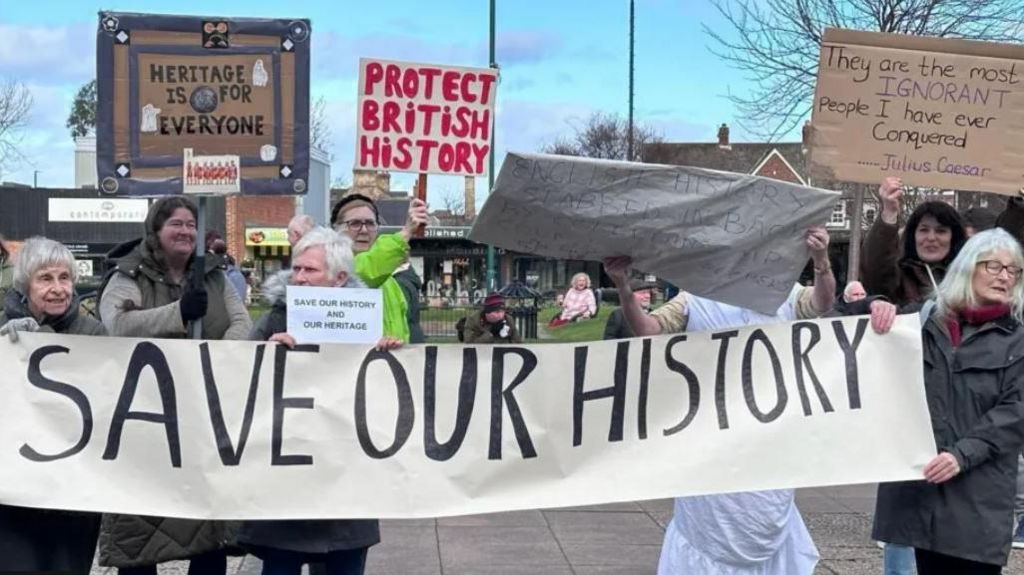Views sought on Roman village site development

Campaigners applied to Historic England for a protection order
- Published
Views are being sought on the future of a housing development site where Roman archaeological artefacts were found.
Romano-British pottery, animal bones and flint tools were unearthed at the site in Marske on Teesside earlier this year.
Campaigners applied to Historic England (HE) to make an order to protect the site and it has now begun a public consultation on its future.
Developers Taylor Wimpey and Miller Homes, which plan to build about 800 homes on the site, said it was working closely with an archaeological advisor.
The site has thrown up a number of finds
Planning permission is currently in place to develop the greenfield site, which is the size of 71 football pitches, at Long Flat field off Longbeck Road.
Campaigners want the development halted so the site can be preserved.
Archaeologist Dr Kendra Quinn, who lives in Redcar, describes the area as "unique" and wants non-invasive work carried out to investigate the Roman remains and learn from them.
She said: "Things are moving in the right direction. We want to learn about the site for future generations but we don't want to destroy it."
One of the artefacts found at the site - a coin dated 950-975AD
HE carried out an inspection of the site earlier this month and confirmed it had found the remains of an Iron-Age and Romano-British settlement, external as well as evidence of a Roman villa.
Members of the public have until the end of March to comment on its report.
It added that if it decided to add the land to a list of nationally important archaeological sites, consent would be required from the secretary of state for any work carried out.
A spokesperson for Taylor Wimpey and Miller Homes said: “We are aware of the consultation currently in progress.
"We would like to assure local residents that the archaeological investigations currently under way have been considered and agreed with the archaeological advisor to the local authority, with additional input from Historic England.
“Archaeologists investigating the site have advised that, at this stage, a full excavation is not required."
Follow BBC Tees on X (formerly Twitter), external, Facebook, external and Instagram, external. Send your story ideas to northeastandcumbria@bbc.co.uk.
Related Topics
- Published6 February
- Published10 January